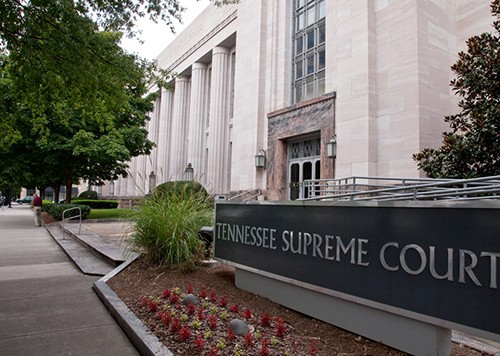
A new order from the Tennessee Supreme Court directs judges to submit a plan to reduce jail populations as a way to stop the spread of coronavirus.
The new order came Wednesday as the court extended its March 20th order mandating all courts stay open but suspend most in-person proceedings through April 30th. The previous order asked judges to work with others in the judicial system to make inmate reduction when possible. The new mandate orders them to make a plan.
“Reduction in local jail populations is a critical component in controlling the spread of COVID-19,” Chief Justice Jeff Bivins said. “There are low-risk, non-violent offenders who can safely be released and supervised by other means to reduce local jail populations. Judges, law enforcement, and attorneys must work together to identify and create an action plan to address this issue.”
The order does come with a list of exceptions. Some cases will proceed, for example, to protect constitutional rights of criminal defendants. Proceedings will also continue in matters related to child safety, emergency mental health orders, those directly related to coronavirus, and more.
The order applies to state and local Tennessee courts, including appellate, trial, general sessions, juvenile, and municipal courts. The court strongly encourages court proceedings to continue by phone, video, teleconferencing, email, and other means that do not involve human contact.
“Judges from around the state and the technology team at the Administrative Office of the Courts hit the ground running March 13th when it came to finding and utilizing technology in courtrooms to keep court proceedings moving,” Bivins said. “Through the AOC court security grants, approximately 30 video arraignment systems have been installed over the past two years and judges are also using WebEx, Zoom, Skype, and other tools to hold hearings and meetings.
Tennessee judges have proven to be innovative problem-solvers when needed. The court greatly appreciates the flexibility and accommodations shown by all in the legal system, including court clerks, attorneys, court staff, and law enforcement personnel.”
The order came after criminal justice reform advocates urged the court to release many incarcerated in Tennessee’s jails and prisons.
Read the court’s order here:
[pdf-1]